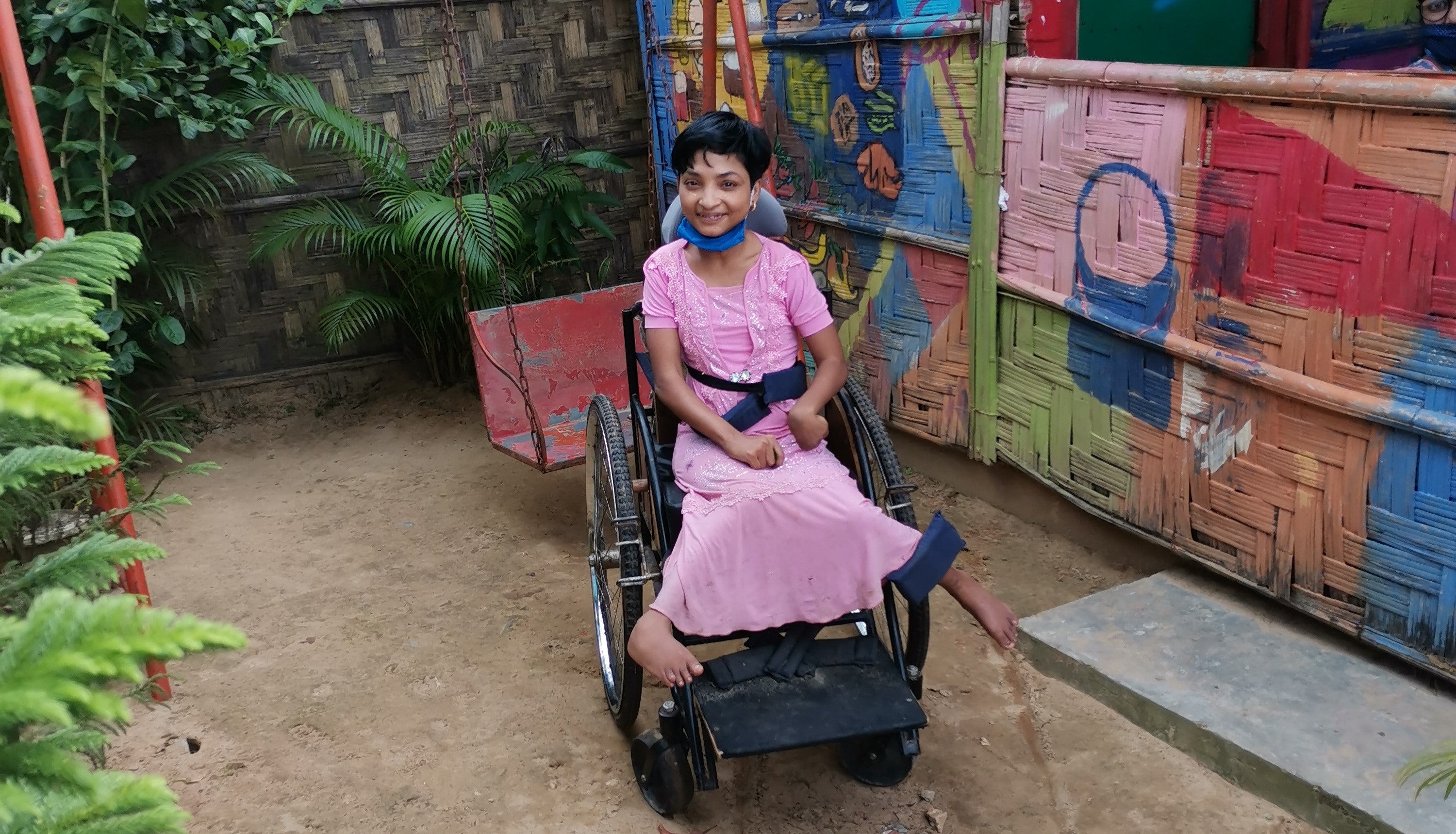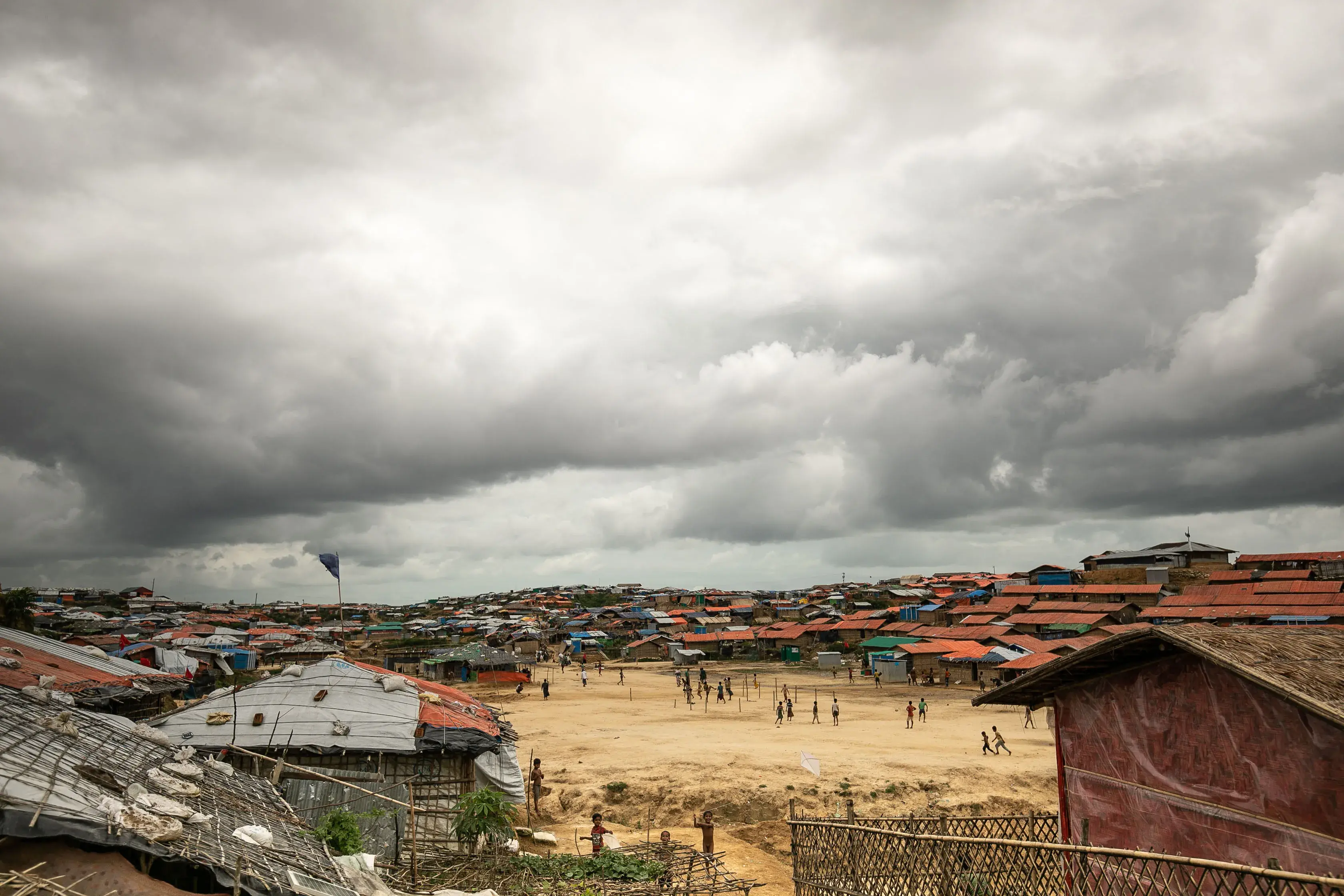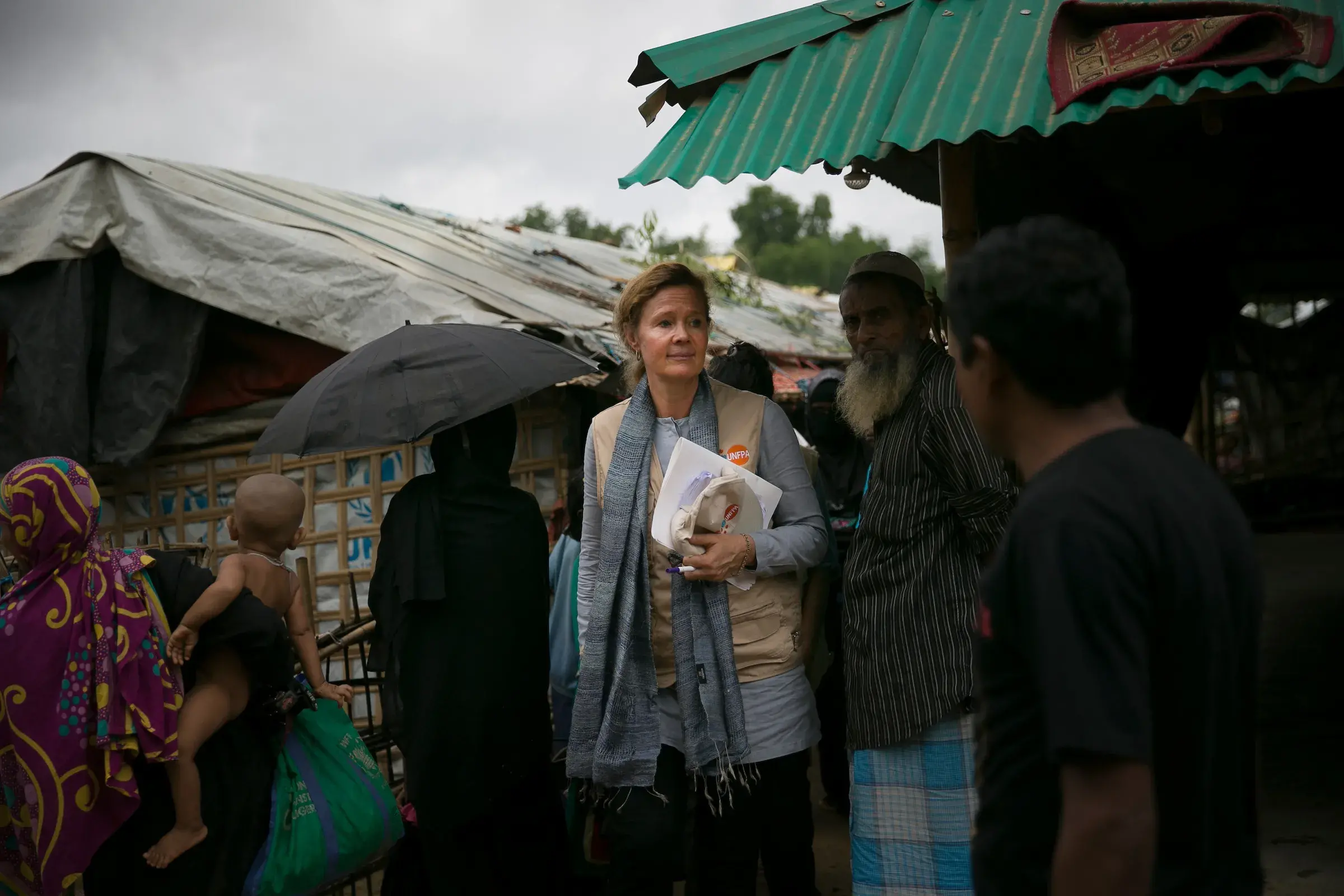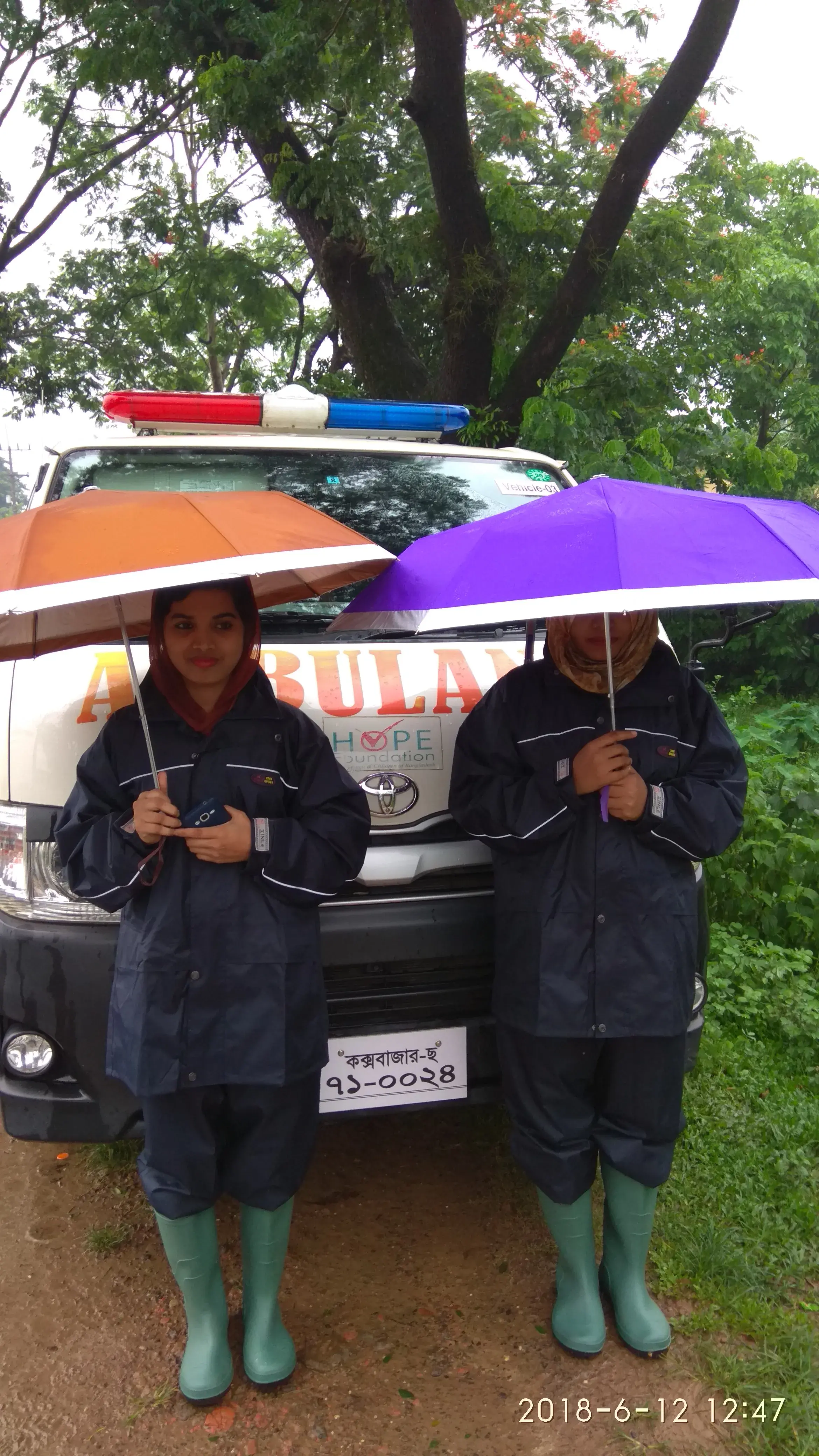“I was so excited to receive a hygiene kit from UNFPA. It is a nice present for me and my two sisters. We will use these items in our daily self-care. I also love the bag, because I can put my water and clothes in it!”, says Mohsina, a 15-year old Rohingya girl living in a camp in Cox’s Bazar.
Mohsina is a special girl. As she swings to and fro in her wheelchair, she cannot contain her excitement as she describes how she felt about coming to a UNFPA Women Friendly Space.
“I am so happy when I come here, because I get to chat with other girls my age. I wish I could stay here all day!”
Sitting under humming fans in the cosy Women Friendly Space, she explains her daily life in the camp with her family since they fled to Bangladesh.
Due to her physical disability, Mohsina is unable to walk and requires a wheelchair to get around. The stigma associated with physical disabilities in her community prevents Mohsina’s family from giving her the opportunity to go out in public often.

“I wish I could come here every day. But it is not possible. Someone needs to come and pick me up in my wheelchair”, she says as she explains the struggles she faces as a differently-abled girl.
Mohsina has never attended school, which makes the Woman Friendly Space’s training sessions on topics like gender-based violence and child marriage particularly exhilarating for her. Most of her day is spent at home with two of her eleven sisters, who have been assigned with the duty of taking care of their sister.
Today marks an exception, however. Moshina has come to the Women Friendly Space to receive a COVID-19 kit that UNFPA is distributing to women and girls in the Rohingya camps. The kits contain various items such as soap, sanitizer and washing powder, for maintaining personal hygiene and preventing the spread of COVID-19.
With funding provided by UK’s Foreign Commonwealth and Development Office (FCDO), a total of 25,000 kits will be distributed to women and girls through the 23 UNFPA Women Friendly Spaces operating in Cox’s Bazar. The recipients will include pregnant women, single women and adolescent girls, as well as girls with disabilities like Mohsina.
Through these measures, UNFPA aims to ensure that the most vulnerable women and girls are protected from COVID-19 and that even amidst a pandemic, UNFPA’s Women Friendly Spaces continue to operate with prevention measures in place, ensuring that those often excluded in society are always included.





